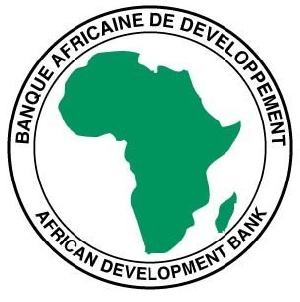– AfDB tells Africa
By Obed Attah YEBOAH
The African Development Bank (AfDB) has urged governments across the continent to use monies borrowed from the international community to undertake productive ventures that will pay back, as the pandemic-induced debts are likely to plunge many countries into distress.
Ever since the coronavirus disease began hitting economies around the world, several governments, including those from Africa, have run to international bodies such World Bank, the International Monetary Fund, and the AfDB for financial assistance to close the yawning fiscal gap created by the pandemic’s impact.
The African Development Bank (AfDB) has urged governments across the continent to use monies borrowed from the international community to undertake productive ventures that will pay back, as the pandemic-induced debts are likely to plunge many countries into distress.
Ever since the coronavirus disease began hitting economies around the world, several governments, including those from Africa, have run to international bodies such World Bank, the International Monetary Fund, and the AfDB for financial assistance to close the yawning fiscal gap created by the pandemic’s impact.
According to the AfDB report dubbed: ‘West Africa’s Economic Outlook’, some countries in the sub-region, including Ghana, even before the pandemic, were at high risk of debt distress, hence, the coronavirus has come to worsen the case for them as governments had to cough up resources to tackle the threats of the virus on the life of the people and the economy.
Countries had to resource their health systems, incentivize health workers and other frontline staff, provide food for the poor and the vulnerable during the lock downs; enforce border closures which eventually has blocked revenue generation, among other actions aimed at controlling the spread of the disease. All these were unbudgeted expenditure for governments on the continent which have consequently widened fiscal gaps.
It further urged development partners who are providing emergency funds to support African governments to adopt the financing model used by the IMF which grants moratorium to countries to start repaying their debt after some years and not immediately as the pandemic’s impact will be felt for a long time before recovery takes place.
“Development partners should proactively engage with the authorities at national and regional level in designing appropriate financing packages that recognize the limited fiscal space obtaining in the region. To this end, the IMF’s COVID-19 grant-based debt service relief would ease the burden of debt repayments on beneficiary countries in the region,” it said.
Ghana, for example, has had to run to the IMF and World Bank for some emergency funding to closing its fiscal gap which Finance Minister Ken Ofori-Atta says will shoot up to 7.8 percent from the pre-pandemic target of 4.7 percent. Put into money, the minister said the deficit will increase from the programmed GH¢18.9 billion to GH¢30.2 billion, the variance equivalent to 2.9 percent of GDP.
In April this year, the Executive Board of the IMF approved the disbursement of about US$1 billion to be drawn under the Rapid Credit Facility (RCF). The disbursement is to help address the urgent fiscal and balance of payments needs that Ghana is facing, improve confidence, and catalyze support from other development partners.
The World Bank also, in the same month, provided US$100 million to Ghana to assist the country in tackling the COVID-19 pandemic. This US$100 million, the bank says, will be made available to the government as short, medium and long-term support.
This financing package includes $35 million in emergency support to help the country provide improved response systems. Under this emergency package the World Bank will support the Government of Ghana to help prevent, detect, and respond to the COVID-19 pandemic through the Ghana Emergency Preparedness and Response Project (EPRP)










